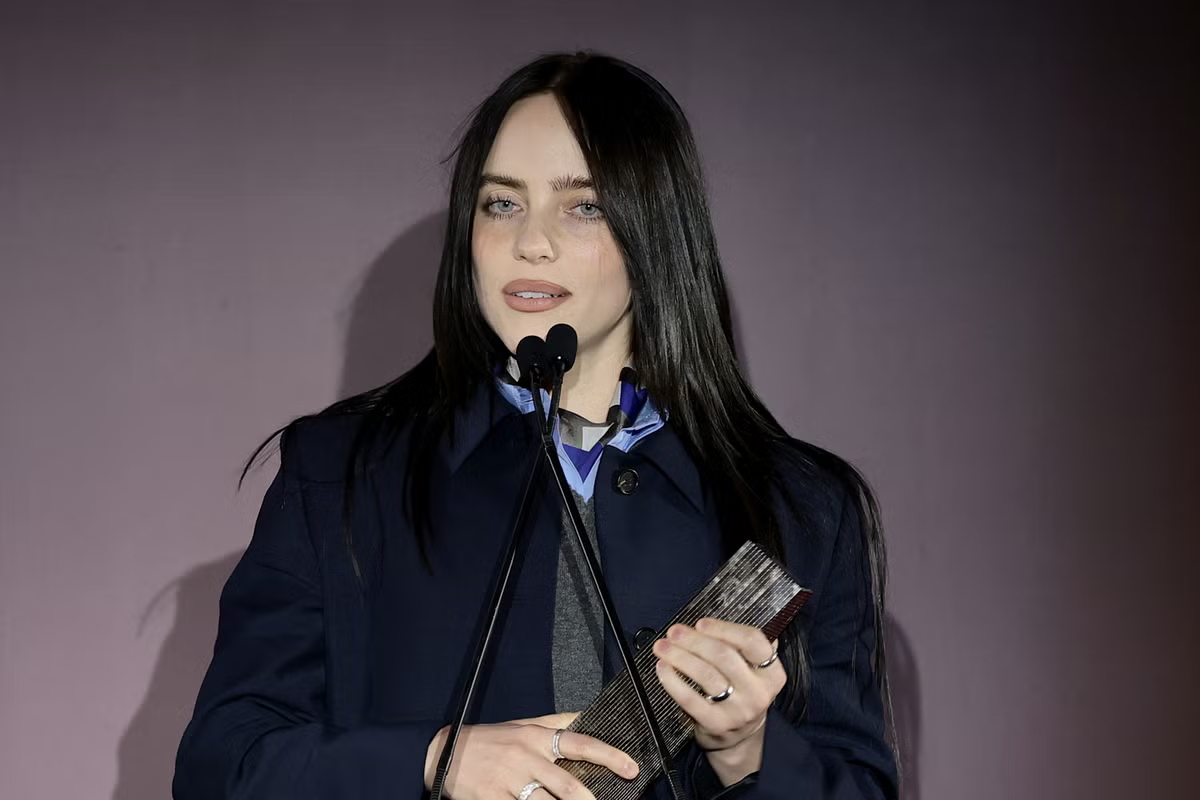Billie Eilish to Billionaires: “Give Your Money Away” (Zuckerberg Was There)
Inside her viral WSJ Innovator Awards speech—and why her callout hits deeper than you think
When Billie Eilish walked onstage at the 2025 WSJ. Magazine Innovator Awards inside New York’s Museum of Modern Art, she wasn’t there just to collect a trophy. She was there to challenge some of the richest people on the planet.
“If you’re a billionaire, why are you a billionaire?” the 23-year-old Grammy winner asked bluntly, glancing at the star-studded audience. Among them sat Mark Zuckerberg, now worth around $257 billion, and his wife Priscilla Chan, who was also being honored that night for her philanthropic work in science.
Eilish didn’t mince words: “People need empathy and help more than ever, especially in our country. If you have money, it would be great to use it for good things—maybe give it to people who need it.”
Then she added, with the kind of casual defiance that’s become her signature: “Love you all, but there are a few people in here who have a lot more money than me… No hate, but yeah, give your money away, shorties.”
She’s Not Just Talking—She’s Donating Millions Herself
Eilish isn’t simply preaching generosity from a distance. During the ceremony, host Stephen Colbert revealed she’s donating $11.5 million from her Hit Me Hard and Soft world tour proceeds to her Changemaker Program—an initiative funding projects that fight food insecurity, reduce carbon pollution, and support climate justice.
Her donation makes her one of the few major artists directly channeling touring revenue toward measurable sustainability and social impact work. It’s a bold move in an industry often criticized for high emissions and lavish spending.
The Hidden Cost of Extreme Wealth
What Eilish’s Billionaire Challenge Really Means for Everyday Consumers
When Eilish asked, “If you’re a billionaire, why are you a billionaire?”, she wasn’t just being provocative—she was raising a critical economic question that affects everyone’s wallet.
The Concentration of Capital and Its Ripple Effect
The world’s richest 0.1% now control nearly a third of global wealth, according to Credit Suisse data. That level of concentration drives up asset prices, squeezes competition, and subtly raises consumer costs. When fewer players dominate industries—whether it’s tech, housing, or food production—prices stay higher for longer.
As a result, consumers face what economists call a “wealth drag”: slower wage growth, inflated housing costs, and reduced market innovation. The billionaire class’ focus on private investments—space ventures, private AI labs, and luxury brands—diverts capital away from the everyday economy that most people depend on.
The “Empathy Economy” Billie’s Talking About
Eilish’s challenge aligns with a growing movement toward ethical capitalism—a model where success isn’t defined solely by profit but by measurable social impact. This shift, driven largely by Gen Z consumers, is reshaping how companies spend, market, and even recruit.
For example, when high-net-worth individuals embrace philanthropy or sustainability projects, it can pressure corporations to re-invest in social good—think reduced carbon footprints, fairer wages, or local community projects. The ripple effect? Consumers get better transparency, more responsible products, and sometimes even price stabilization when companies operate more ethically.
What You Can Do as a Consumer
-
Shop for alignment, not just aesthetics. Support brands that commit to traceable impact—climate pledges, fair wages, or donation matching.
-
Follow where corporate profits go. Quarterly reports and ESG rankings (Environmental, Social, Governance) reveal which firms are giving back versus hoarding returns.
-
Invest mindfully. Even small investors can favor companies that balance profit with purpose—look for funds labeled “sustainable equity” or “social impact.”
-
Hold billionaires accountable. Social media engagement and consumer choices are more powerful than you think; viral pressure can force change faster than policy.
The Bigger Picture: From the Stage to Wall Street
Eilish’s “give your money away” moment wasn’t just celebrity virtue signaling—it was a reflection of a deep economic anxiety shared across generations. The global billionaire count has more than doubled in the past decade, while household purchasing power has stagnated.
Her message lands because it exposes an uncomfortable truth: when wealth piles up, empathy often doesn’t.
As younger consumers demand transparency and purpose, companies that ignore that moral and financial reality risk losing market trust. And that’s something even the richest “shorties” can’t buy back.
Key Takeaway
Billie Eilish’s viral speech wasn’t just about generosity—it was about economic balance. Her $11.5 million donation is more than a gesture; it’s a blueprint for how influence, empathy, and capital can coexist. For consumers, the takeaway is simple: spend consciously, invest with intent, and demand more from those who have the most.














